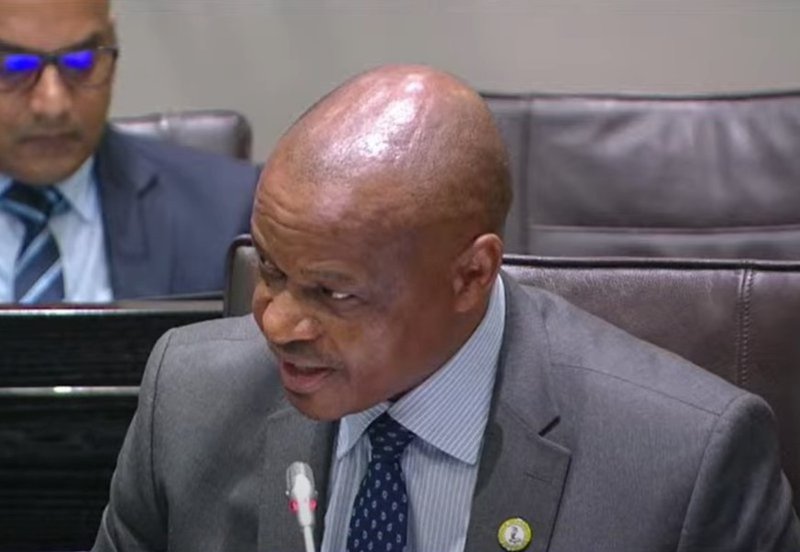Mothibi calls for overhaul of SIU funding model, stronger whistleblower protection
Updated | By Mmangaliso Khumalo
Special Investigating Unit (SIU) head Advocate Andy Mothibi has called for a complete overhaul of the SIU’s funding model and stronger protections for whistleblowers and investigators, warning that current systems are placing South Africa’s anti-corruption efforts at serious risk.

Speaking at a seminar hosted by the Institute for Security Studies (ISS) on Wednesday, Mothibi addressed the findings of a new research project undertaken jointly by the ISS and the SIU, which assessed the unit’s operational strengths and systemic challenges.
Mothibi revealed that government departments currently owe the SIU over R1 billion in unpaid fees — a consequence of the unit’s dual funding structure, which combines a parliamentary grant (47%) with revenue from fee-for-service work (53%).
"Although some state institutions pay, some don’t pay. And inherent in that is that the proclamation would say investigate at such department… and we have to make findings against them. They would not be enthusiastic about paying us. So, as we see today, in fact, the debt from state institutions it’s well over one billion. It’s not acceptable."
While Mothibi described the model as sustainable in theory, he warned that reliance on fee recovery is proving problematic when departments under investigation refuse to honour their obligations, undermining the unit’s ability to fund long-term corruption probes.
"We are saying we require, even in the amendments that we put through now, that the funding model needs to be changed."
He said the SIU needs stable, predictable funding to attract skilled staff, develop competitive pay structures, and operate with independence, much like SARS did under its reform model as a Schedule 3 public entity.
Mothibi also used the platform to call for urgent legislative reform to bolster whistleblower and witness protection, especially in light of the murder of Gauteng Health Department official Babita Deokaran, who was assassinated in 2021 after flagging suspicious procurement linked to Tembisa Hospital.
READ MORE: 'Find the kingpins' - Babita Deokaran remembered two years after assassination
"We want an overhaul, a general whistleblower protection, including witness protection. If you don’t become a witness at the moment, the protection is a bit on the low side."
He added that the SIU has had to introduce internal, self-funded measures to protect whistleblowers who report wrongdoing directly to the unit, citing specific threats faced by investigators working on the Tembisa case.
"Even our investigators at some point… said, hey, we’ve noticed this, this, this, and that — we require really a measure of protection."
Mothibi confirmed that one individual linked to the Tembisa Hospital case may be connected to the planning of Deokaran’s assassination.
"One of the individuals is linked to Tembisa and may just be part of the masterminds behind Babita Deokaran’s demise — may her soul rest in peace."
He urged law enforcement, particularly the Hawks and NPA, to intensify efforts to uncover and prosecute the masterminds behind whistleblower killings.
According to Mothibi, the Department of Justice has already circulated draft amendments to the Protected Disclosures Act, which currently focuses on employment-related retaliation and fails to offer broader security protections.
He expressed hope that the current administration would fast-track these reforms and model the system on international best practices.
ALSO READ:

MORE ON JACARANDA FM
Show's Stories
-
WATCH: CEO caught cheating on concert big screen
Imagine being caught having an affair at a Coldplay concert...
Breakfast with Martin Bester 12 minutes ago -
Top 10 countries with the best work-life balance
Find out where South Africa ranks among the countries with the best work...
Breakfast with Martin Bester 13 minutes ago